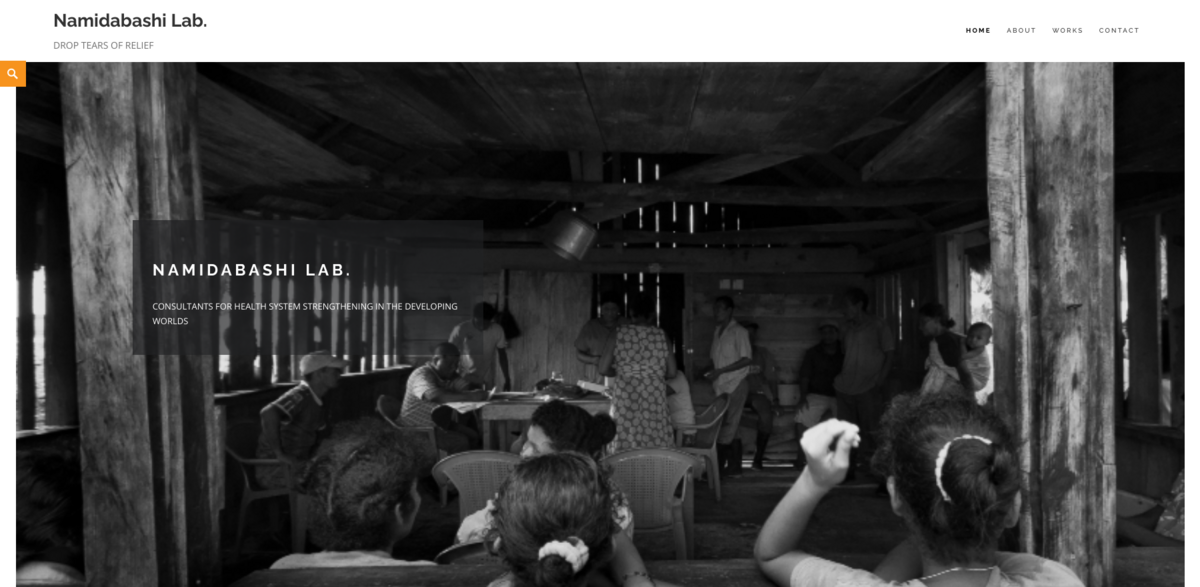What Is Namidabashi Lab?
Namidabashi Lab. is a unique consultancy focused on health system strengthening in developing worlds. They specialize in technical cooperation and financial aid projects, offering services like designing, managing, and evaluating health initiatives. Their approach isn’t just about ticking boxes—they aim to cultivate a “process gardening” environment, creating safe spaces for dialogue around health development and system strengthening. It’s about bringing different voices together, especially in complex settings where safety and inclusivity matter.
Main Benefits and Key Facts
Here’s a quick snapshot of what makes Namidabashi Lab stand out:
- Established in 2015, with a base in Asakusa-Sanya, Tokyo—a culturally rich area known for its diverse community including day labourers and travellers.
- Certified B Corporation since 2018, meeting high standards of social and environmental performance, transparency, and accountability.
- Focus on underserved and underrepresented groups, aiming to improve access to quality health services for those facing difficulties.
- Adopts a “Whole-System Approach” to co-create solutions in volatile, uncertain, complex, and ambiguous (VUCA) environments.
- Integrates a human rights-based approach in project management to address inequalities and unjust power distributions.
- Flexible and aware evaluation methods tailored to complex situations in developing countries.
- B Corp score of 112.3, reflecting strong commitment to social impact and sustainability.
The Whole-System Approach
Namidabashi Lab’s “Whole-System Approach” is all about seeing the bigger picture. Instead of focusing on one angle, they gather diverse perspectives from the entire system. This method helps stakeholders and well-wishers co-create solutions that really work, especially in those tricky VUCA environments—where volatility, uncertainty, complexity, and ambiguity reign. It’s a way to make sure no voices get left out, especially those from underrepresented groups. Because, let’s face it, health development is messy, and it takes all kinds of views to get it right.
Managing Projects with a Human Rights Lens
When it comes to managing projects, Namidabashi Lab doesn’t just track timelines and budgets. They weave a human rights-based approach into everything. This means recognizing how projects impact inequalities, discriminatory practices, and unfair power dynamics that often block development progress. By doing this, they aim to create programs that don’t just deliver results but also promote fairness and justice. It’s a thoughtful way to manage, ensuring development truly benefits those who need it most.
Flexible and Aware Evaluation
Evaluating health projects in developing worlds isn’t a one-size-fits-all deal. Namidabashi Lab understands this deeply. Their evaluation approach is flexible and highly aware of the many methods available. They pick and choose designs and techniques that best fit the questions at hand and the unique circumstances of each project. This adaptability is key, especially in complex environments where rigid methods just don’t cut it. It’s about being smart, responsive, and open to trial and error.
Project Impact on Sustainable Development Goals (SDGs)
- SDG 3: Good Health and Well-being
- SDG 10: Reduced Inequalities
- SDG 17: Partnerships for the Goals
- SDG 5: Gender Equality (through inclusive approaches)
- SDG 8: Decent Work and Economic Growth (via community empowerment)
Rooted in Asakusa-Sanya, Tokyo
Namidabashi Lab’s home base is Asakusa-Sanya, a neighborhood in Tokyo known for its distinctive culture. It’s a place where day labourers, travellers, and people from various walks of life coexist. This unique environment reflects the Lab’s commitment to inclusivity and understanding diverse social fabrics. The cultural richness of Asakusa-Sanya inspires their work and reminds them daily of the importance of embracing complexity and diversity in health development projects worldwide.


















